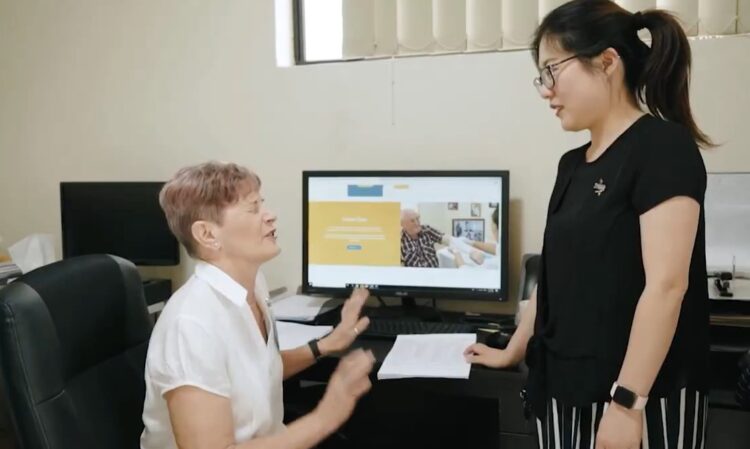When you’re new to the NDIS, it’s easy to feel confused or unsure about where to begin. There’s a lot to take in in terms of plans, budgets, and support options, and one of the biggest decisions you’ll face is choosing the right provider.
The National Disability Insurance Scheme (NDIS) give people with disabilities more choice and control. It helps fund important services like personal care, therapy, and support to live more independently. But to get the most out of it, it’s important to work with a provider who truly understands your needs and goals.
Today, we will give you eight essential questions to ask when speaking with potential providers. These questions will help you feel more prepared, more confident, and more in control of your choices.
With many NDIS service providers available, knowing what to ask can help you choose the one that’s the best fit for you or your loved one.
Page Contents
Why Does Choosing the Right NDIS Provider Matter?

Choosing the Right NDIS Provider
Every provider is different in their experience, approach, and what they offer, so taking the time to choose wisely really matters. A good match means you’re more likely to feel understood, supported, and in control.
That’s why asking the right questions is key when looking at different NDIS service providers, as it helps you build a strong, lasting partnership that supports your goals now and into the future.
8 Essential Questions to Ask When Choosing an NDIS Provider
Everyone’s situation is different, so it’s important to ask clear, helpful questions that show whether a provider truly understands and supports your goals. These questions can help you spot the difference between someone who ticks boxes and someone who genuinely cares.
1. What Services Do You Offer, and Are They Customised to My Needs?
Before anything else, make sure the provider actually offers the services you’re looking for. Do you need help with daily personal care, like showering or dressing? Support to get out into the community? Therapy or nursing care at home? Every person’s support needs are different, so it’s okay to ask for the details.
A good provider will explain what they offer and how flexible they are. Can the services be changed or adjusted as your needs change? Can they create a plan based on what matters most to you? The best NDIS service providers will work with you to create a support plan that’s not one-size-fits-all.
2. Are You a Registered NDIS Provider?
Some providers are registered with the NDIS, while others are not. Registered NDIS providers have to meet strict quality and safety standards set by the government. This means they’re regularly checked and are more likely to follow clear rules that protect your rights.
If you’re self-managed, you can choose either type of provider. But if you have a plan-managed or NDIA-managed plan, you’ll need to choose a registered provider.
3. What Experience Do You Have Supporting People with Similar Needs?

Supporting People with Similar Needs
Not all NDIS providers have the same background, so it’s a good idea to ask about their experience, especially if you or your loved one has specific or complex needs.
You can also ask if they’ve worked with people who have the same condition or needs as yours. The more experience they have, the more likely they’ll understand how to provide the right kind of care without needing to be guided every step of the way.
Don’t forget to ask about language or cultural support as well.
4. How Do You Provide Consistency and Quality of Care?
It’s important to feel safe and comfortable with the people providing your support. That’s why consistency matters. Seeing the same support workers regularly helps build trust, reduces stress, and makes everyday routines feel easier.
Ask how the provider keeps your support team consistent. Will you see the same person each week? What happens if someone is sick or on leave?
You should also enquire about staff training and qualifications. Are the support workers trained in areas that matter to you? Do they take part in ongoing learning?
Reliable, familiar care is one of the key things to look for when choosing between different NDIS service providers.
5. How Involved Will I Be in Planning and Decision-Making?
Your NDIS plan should reflect your goals, your needs, and your choices and not just what a provider thinks is best. That’s why it’s important to ask how involved you’ll be in the planning process.
A good provider will follow a person-centred approach, which means you (or your loved one) are at the heart of every decision. You should have a say in what supports are included, when they happen, and how they’re delivered.
Ask how your plan is created and how often it’s reviewed. Can it be changed if your needs shift or if something isn’t working? The best NDIS service providers will work with you as a team, making sure your voice is always heard.
6. How Do You Communicate and Provide Updates?
When you can easily reach your provider, ask questions, and get clear answers, it builds trust and helps avoid confusion.
Ask how the provider stays in touch with clients and families. Will they call, text, or email? Do they offer regular updates on progress or changes? Also, ask how they handle feedback. Can you easily raise concerns, and will they listen?
Reputed NDIS service providers know that open, honest communication makes everything smoother.
7. What Happens if I Want to Make Changes or Have a Concern?
Sometimes, things don’t go as planned, and that’s okay. What matters is how your provider handles it. It’s important to ask about their feedback or complaints process. Can you speak up if something isn’t working? Will they listen and respond in a helpful way?
You should also ask if it’s easy to change your services. Life changes, and your support might need to change, too. A good provider will be flexible and open to adjusting your plan. And if you ever feel the provider isn’t right for you anymore, you should be free to switch without pressure.
8. What Are the Costs, and How Are Services Billed?
Before starting with any provider, it’s important to understand how much the services will cost and how the billing works. Ask to see a clear service agreement that explains pricing in simple terms.
Good providers follow the official NDIS price guide, so there shouldn’t be any surprises. But it’s still smart to ask:
- Are there any extra costs?
- How are invoices sent?
- Will I get a copy of everything in writing?
Understanding the financial side gives you more control and helps you avoid stress later on.
Red Flags to Watch Out For
While many providers are caring and professional, it’s helpful to know what warning signs to look out for. These might include:
- Poor communication or delayed replies
- Unclear pricing or hidden fees
- Lack of flexibility or unwillingness to adjust services
- No clear plan for handling feedback or complaints
If something doesn’t feel right, trust your instincts. You have the right to choose a provider who respects you, listens to you, and works with your goals in mind.
Final Words
Choosing an NDIS service provider is a big step, and taking your time is okay. Ask questions, compare options, and get support if you need help making a decision.
There are many caring, trustworthy NDIS service providers out there who truly want to make a difference. The right provider won’t just meet your needs—they’ll make you feel heard, supported, and valued.
With the right provider by your side, you can feel confident in your support and focus on what truly matters which is living life on your own terms.




